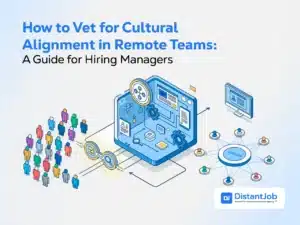Bill has many years of experience working in the IT field. Besides his great educational background, he has also worked for top tech companies such as Apple and Google. After working for many years in these corporate businesses, he decided that it was time for a change. With all his knowledge and experience, he wanted to build something on his own, so he founded his startup. He partnered up with his closest friends, and they launched their product. In the beginning, it had excellent reception, and they had great results. So great that they started hiring more people and the departments began expanding. But over time, things began to crack. And in less than a year, Bill’s dreamed startup failed.
Is this story real? It depends on who you ask because many entrepreneurs have lived this story as if it was their own. One of the top reasons why startups fail is not because the product was boring or not interesting. But because they didn’t hire the right talent.
What Causes Startups to Fail?
The clock is ticking, which means, every day, every hour, and every minute a new idea is born. Change is happening so fast, mainly because of technology. But what does this mean for startups? That they must have a strong strategy innovating and keeping up with the world’s changes. Otherwise, they won’t survive. But startups not only fail because their ideas weren’t good enough, new, or lacked something.
In the infographic below, you’ll find the startup failure rate statistics and the main reasons why startups fail:

How to Avoid Startup Failure
How to avoid being part of the previous statistics? Don’t let the numbers scare you; with the right strategies and the right team on your side, failure will be like princess Fiona’s hometown (Shrek): Far Far Away. Here are the top 5 strategies that will help you build a successful startup:
1. Build the right team
You could have billions of dollars to create a startup. Or have the most innovative and revolutionary idea. But without a strong team, it’s all in vain. According to a study published by CB insight, the third reason why startups fail is not related to money. 23% of startups fail because they don’t have the right team.
Bestselling author, Simon Sinek, inspired thousands of entrepreneurs with his book ‘’Start With Why’’. He explained that one of the keys to inspiring others (and being successful) is by making people understand why you believe in what you do instead of explaining what you do. What does not having the right team mean? Hiring people that are either not engaged with their job, don’t believe what you believe, or are not talented enough.
The same happens with the people you hire; you shouldn’t only hire employees with an excellent CV. Yes, hard skills matter. But you also should hire people who believe in what you believe, and help you reach the same goals.
2. Find your niche
Have you ever had to deal with 20 things in a day and had no idea where to start? And then after stressing out and trying to do a bit of all the things, you realize it’s 8 o’clock, and you haven’t finished anything! The same thing happens with businesses. When you don’t have a niche, it’s easy to fall into the trap of doing a bit of everything and end up with nothing.
Let’s carefully review the definition of niche.
When a business has a niche, what it means is that it specialized in a certain market or group of people. The main benefit of having a niche is that you stand out from usual products in the market and that you can continually keep specializing in that product adding more value to your brand.
For example, imagine you want to get into the food industry. But the food industry is enormous, so you start by cutting it into pieces. You want to sell healthy and natural food. But besides that, you go even beyond and decide that your primary audience will be vegans. And there you go; your niche will be vegans and producing healthy food for them to buy. That’s your solid foundation.
3. Have Great Leadership Skills
Leadership means everything in a business. Did you know that 57% of employees quit their job because of their bosses? When bosses, instead of leading, micromanage their teams, they make their employees feel that their work means nothing. Or if it’s the other way around and they don’t care, employees might feel left out and seek for another job opportunity.
When you start your business, it’s important to be passionate about what you do and transmit that passion. But also, it means developing skills such as:
- Efficient communication
- Motivate and inspire your team
- Delegate
- Keep learning, and encourage your team to learn as well
- Be empathic
- Trust (in you and your team)
- Creativity
- Charisma
- Turn information into action
- Strong goals and vision
These skills make you a successful leader and allow you to guide your team even when times are tight, and numbers don’t look so good. Owning a startup and being successful doesn’t mean that it will always be that way. You’ll have challenges, but with the right leading abilities, you’ll be able to overcome them.
4. Prioritize resources
As a leader, your priority should be working with what you have and making that bring you even more. This means creating a solid business plan, making sure it’s realistic, and that you have a foundation for it. If you go crazy, spending your resources on hiring too many employees (for example), soon you might get out of money and have no results.
How to avoid making this mistake? Spend only on the essentials. Try networking as much as you can, and use different strategies without spending millions to receive your first customers. Also, take time to build a solid plan. There is this idea that money will come down like rain because you have a great idea. The story’s backside is that usually, successful leaders had to break their backs off coming up with strategies to sell their idea, earn more money, and invest it, rather than just spending it.
5. Adapt to the world
Coronavirus has taught us so many valuable lessons. It has led many of us to bravely learn how to cook, and discover that we had hidden cooking skills! Or that doing exercise at home is fun. However, most people’s biggest lesson during 2020 is that working from home is possible and effective. Who would’ve thought that your coworkers this year would be your kids or your pets? Many people used to the office’s noise, or the long hours of a commute are in paradise right now. Others have struggled to work remotely because their company wasn’t organized or prepared for these big changes.
Being successful as a leader and entrepreneur require you to be continually adapting to the changes in the world. If you don’t innovate, you perish. Hence, Blockbuster and many other companies went bankrupt because they chose to stay the same.
Hire Better, Hire Remotely
Hiring remotely will prevent startup failure. A bold statement, but think about it. When you hire virtual employees, you are not only adapting to how the world works, but you’re also allowing yourself to find and hire better people at affordable prices.
Hiring remotely compared to local hiring has major advantages. The world is your limit! This means that:
1) You can recruit and hire talented people from anywhere in the world. If you stay locally, it’s harder for you to get the talent you seek, so why not expand your borders?
2) Some countries have lower living costs than others. For example, if you live in the U.S., most of the salaries are high. If you go to other places like Eastern Europe, you’ll find out that software talent is exceptional, and the wages are much lower.
As a remote recruitment agency specializing in tech talent, we aim to help all startups and companies get the IT talent they need. We not only help you hire the most talented developers in the world. We also analyze which candidates will make a better fit for your company’s culture and processes. It sounds great, right? Get in touch!






